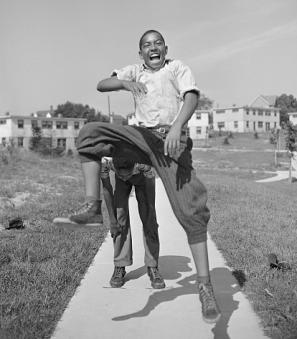Washington Hosts the 1969 All-Star Game
A few weeks before the 1969 All-Star game, baseball commissioner Bowie Kuhn was on the phone when he let out an “anguished wail.” Someone on the other end was asking him what to do if the game, at RFK Stadium in Washington, D.C., got rained out.[1]
“Think of something positive,” Kuhn said, “But if it does rain on All-Star night, we’ll try again Wednesday afternoon. And if it rains then…” he trailed off.[2]
The voice on the phone persisted. But what if it rains the next day too, and the one after that?
“What are you, the official Capital Doom?” the commissioner replied.[3]
Sportswriter Bob Addie, known for capturing amusing anecdotes in his columns, relayed the scene for the Washington Post, a few weeks before the game. It was a harbinger of things to come.
The 1969 Midsummer Classic was scheduled for the evening of July 22, and it was meant to be the climax of two days spent celebrating the 100th birthday of Major League Baseball. A few hours before the game, President Richard Nixon held a reception at the White House for both past and present “greats of the game.”[4] Once players on the roster for the night’s game each shook hands with the president, they stepped out onto the porch, “[looked] forlornly at the weather,” and boarded buses to the stadium.[5]
Meanwhile, more than 1,800 invited guests—baseball stars, members of Congress and cabinet members—made their way to the D.C. Armory where Bowie Kuhn was throwing a huge party. Large tents were set up on the lawn outside RFK. A Dixieland band played “American tunes” and the food was traditional American fare, hot dogs, pork chops, potato salad and coleslaw.[6]
It was surely a great event, but unfortunately, “before the first martini was stirred, the first champagne uncorked, a freak thunderstorm of rare savagery struck.”[7] Men used poles to lift the tops of tents and push out the water. It splashed down “in great cascades.”[8]
“After 100 years of baseball, they still can’t control the weather,” said the wife of Red Schoendienst, the St. Louis Cardinals manager and skipper of the National League All-Star team.[9]
Inside the stadium, a layer of water covered the outfield. Streams of murky water gushed down and filled the dugouts. Addie wrote that it “looked like 100 years of rain to celebrate the centennial.”[10]
There was no way the teams could play. So, for the first and only time in baseball history, the All-Star game was postponed. (Two past All-Star games were called early due to weather.[11]) “Leave it to Washington to establish another ‘first,’” Addie wrote.[12]
The show would go on the following afternoon. And it was the last time an All-Star match took place mid-day rather than during primetime.
The postponement threw a wrench in some baseball lovers’ plans and left them scrambling to rearrange their schedules, or unable to attend at all. This latter category included President Nixon, who was leaving for an international trip—by way of the Pacific where he was scheduled to meet the Apollo 11 astronauts returning from the moon.
Initially, the president had disregarded aides’ suggestions that he leave the game early to accommodate his travels.
He said at the White House reception: “Just to give you an indication of how much I think of the game, I was told that in order to get to San Francisco and the splashdown in time, I would have to leave in the fifth inning. And I tell you, I never leave in the middle of the game and I don’t intend to tonight.”[13] But, in the end, he jetted off, and Vice President Spiro Agnew stepped in to throw out the first pitch.
The 1969 All-Star game came during a summer of highs—the revolutionary accomplishments of NASA’s moon landing—and lows, mounting opposition to the Vietnam War which came to a head in Washington that November at the massive anti-war demonstration on the Mall.
For all the special events at the White House and outside the park, regular Washingtonians were there to see the game, to watch the most impressive players in baseball go head-to-head.
A sold-out crowd of more than 45,000 arrived the afternoon of July 23, hoping the weather would hold out.[14] Local fans were excited to watch hometown hero, Senators star Frank “Hondo” Howard, who was in the starting lineup for the American League. Howard got a standing ovation when he was introduced. But early on, he blew a catch on a Hank Aaron pop fly to left, a gaffe which gave him an error and the National League its first run. The NL stars would tack on two more before Howard could make amends.
As sports columnist Shirley Povich wrote, “by the time Howard came to bat, it was different. Off the St. Louis Cardinals No. 1 pitcher, Steve Carlton, he hit a ball that if it ever came down would be one of the longest home runs in RFK stadium. It did, and it was.”[15]
Howard’s a long solo home run soared towards the center-field mezzanine seats and, at 458 feet, was the longest of the night.[16]
“The place was nuts, obviously. His eyes were glistening as he rounded third,” recalled local TV and radio host Phil Wood.[17]
For Howard it was a thrill, as he told DCist in 2018, “Being able to represent my team … and Washington, D.C. like that, it was unbelievable.”[18]
Hondo’s homer was a “moment of joy” for the American League fans, part of a fast start to the game, which saw five home runs smashed in the first four innings.[19] But despite the thrill of Howard’s great swing, and a subsequent “homer-robbing” catch by Carl Yastrzemski, the AL would come up short and lose to the National League for the seventh straight year. The final score was 9-3.[20]
Regardless of the outcome, it was also a huge thrill to see the greats of the MLB all descend on Washington at once. In the days before interleague play Washington Senators fans normally only got to see National League stars during exhibitions. But on July 23, 1969 they watched numerous future Hall of Famers – including Aaron, Yastrzemski, Willie Mays, Frank Robinson, Roberto Clemente, Brooks Robinson and others – in their home park.
Though it was a day late, the 40th All-Star game drummed up serious excitement. Combined with the unexpected success of the Senators under new manager Ted Williams, the 1969 baseball season probably seemed like the beginning of something new and great for D.C. baseball fans. But it wasn’t to be. Three years later, Senators owner Bob Short moved the team to Texas. It was not until 2005 that the Washington Nationals brought baseball back to the city and not until 2018 that D.C. hosted its next All-Star game.
Watch Frank Howard hit a home run in the 2nd inning at the 1969 All-Star game:
Footnotes
- ^ Addie, Bob, “What If It Rains.” The Washington Post, Times Herald, July 4,1 969, p. D2.
- ^ Ibid.
- ^ Ibid.
- ^ Wiegers, Mary, “The Birthday Party That Struck Out.” The Washington Post, Times Herald, July 23, 1969, p. B1.
- ^ Ibid.
- ^ Ibid.
- ^ Leavengood, Ted. Ted Williams and the 1969 Washington Senators: the Last Winning Season. McFarland, 2009.
- ^ Wiegers, Mary, “The Birthday Party That Struck Out.”
- ^ Ibid.
- ^ Addie, Bob, “100 Years of Rainfall.” The Washington Post, Times Herald, July 23, 1969, p. D3.
- ^ In 1952 in Philadelphia, the game was called after five innings due to rain. In Boston in 1961, it rained in the 9th, and the game ended in a 1-1 tie.
- ^ Ibid.
- ^ Wiegers, Mary, “The Birthday Party That Struck Out.”
- ^ Minot, George Jr., “McCovey Hits Two as NL Breezes, 9-3: 45,259 See 5 Homers in star Game.” The Washington Post, Times Herald, July 24, 1969.
- ^ Povich, Shirley, ”The Morning…” The Washington Post, Times Herald, July 24,1969, p. C1.
- ^ Minot, George Jr., “McCovey Hits Two as NL Breezes, 9-3."
- ^ Weiner, Steven C., “July 23 1969: Willie McCovey’s two homers power National League to All Star win.” Society for American Baseball Research: https://sabr.org/gamesproj/game/july-23-1969-willie-mccovey-s-two-homer…
- ^ Blitz, Matt, “A Run to Remember: What Happened The Last Time baseball’s All-Star Game Played in Washington, D.C.” DCist, July 13, 2018.
- ^ Minot, George Jr., “McCovey Hits Two as NL Breezes, 9-3."
- ^ Ibid.


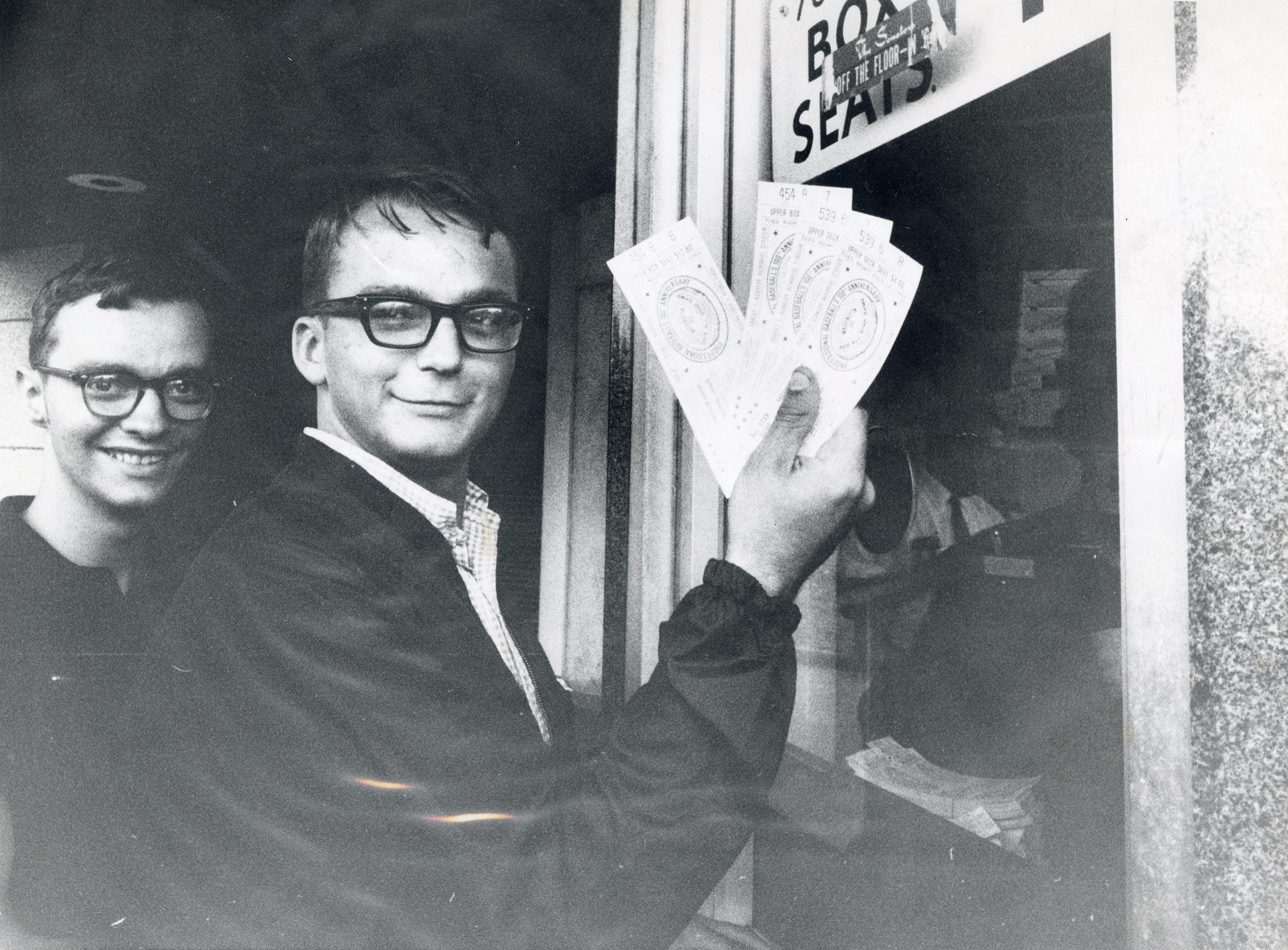
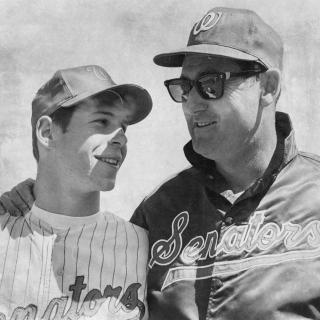
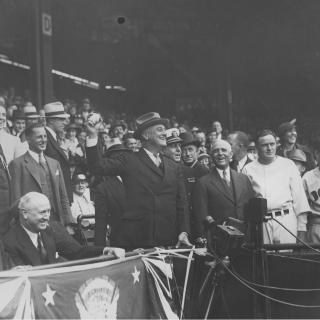
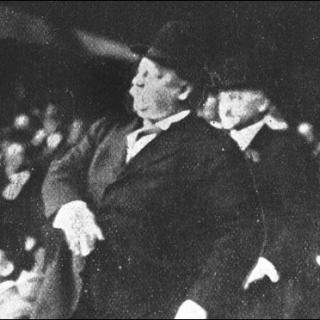
![Sketch of the mythical fuan by Pearson Scott Foresman. [Source: Wikipedia]](/sites/default/files/styles/crop_320x320/public/2023-10/Goatman_Wikipedia_Faun_2_%28PSF%29.png?h=64a074ff&itok=C9Qh-PE1)











